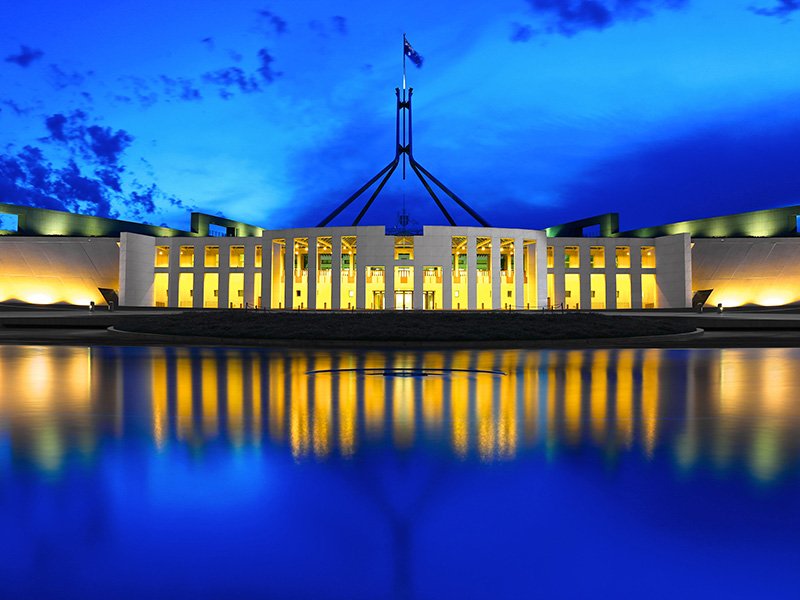Deceptive deepfake videos and voice clones will be banned during elections and referendums under Albanese government truth in political advertising laws introduced on Monday to try stem the flow of misinformation.
But the new bans won’t be in force for the next federal election, with only a mandatory disclosure that material was substantially modified by digital technology potentially expected to be in force by then.
The government and opposition teamed to vote down an attempt to have the generational electoral reforms examined by a committee, despite the key changes not coming into effect until 2026.

The Electoral Legislation Amendment (Electoral Communications) Bill 2024 will prohibit electoral and referendum material that is inaccurate and misleading to a material extent.
This includes material that has been modified using technology, such as deepfakes, after growing concerns that an influx of digital misinformation is undermining public trust and electoral processes.
The bill would prohibit the authorising of electoral written, visual and audio matter that purports to be factual but which is “inaccurate and misleading to a material extent”.
Even if not deceptive, authorisers will still have to disclose to authorities and in the content when material was “substantially or entirely created or modified using digital technology”.
The law would only apply to electoral advertisements and certain promotional materials, such as election pamphlets and posters, which seek to influence a person’s vote and which are already subject to the federal authorisation frameworks.
There are exceptions in the bill to protect genuine political debate and expression including, opinion; academic, educative, satirical or artistic communications; professional news media and private or parliamentary communications.
Breaches would be determined by a new 15-person panel led by a retired Federal Court judge and will make initial decisions within two days to try and stem the flow of online misinformation.
The panel can ask authorisers to update or remove material found to be in breach but would have to go to the Federal Court for enforcement. New civil penalties in the bill could see fines up to $330,000 for breaches.
The panel will be part of the Australian Electoral Commission but act independent of the Commission, which would continue to focus on conducting elections.
The AEC has repeatedly warned it is currently ill equipped to deal with the torrent of online misinformation being turbocharged by artificial intelligence.
The absence of federal requirements has been highlighted by Independent Senator David Pocock, who in September posted AI-generated videos of the prime minister and opposition leader to social media to prove his point.
The government’s bill would also remove the current broadcast media blackout on election and referendum advertising in the three days before a vote.
View this post on Instagram
The federal laws follow South Australia’s effective truth in political advertising framework and come in response to a joint committee’s call last year for sweeping electoral reforms a year ago.
The Albanese government has kept its response to growing calls for electoral reforms under wraps until last Friday when it began circulating its legislation, which also includes sweeping changes to how political parties and candidates can raise and spend money.
The election communications and reform bills were introduced to the House of Representatives on Monday and the crossbench attempted to have them sent for inquiry in time for the next election.
The government and Coalition members teamed to vote down an inquiry into both bills, attracting further criticism from the cross bench, which is expected to suffer from new caps on donations and campaign spending in the electoral reforms bill.
Independent MP Zali Steggall said the major parties are trying to ram through the bill for donation reform that could entrench the two party system without scrutiny, but will allow the election communications bill to “languish”.
“The government has no intention to push that one for debate and to a vote, because it wouldn’t want to be stopped from lying when it comes to its advertising,” Ms Steggall said.
“So not only are we going to Australian people being asked to pay more to political parties, they actually going to have to pay for the privilege of being lied to as well, because there’s a constant delay in introducing voter protections.”
Do you know more? Contact James Riley via Email.

